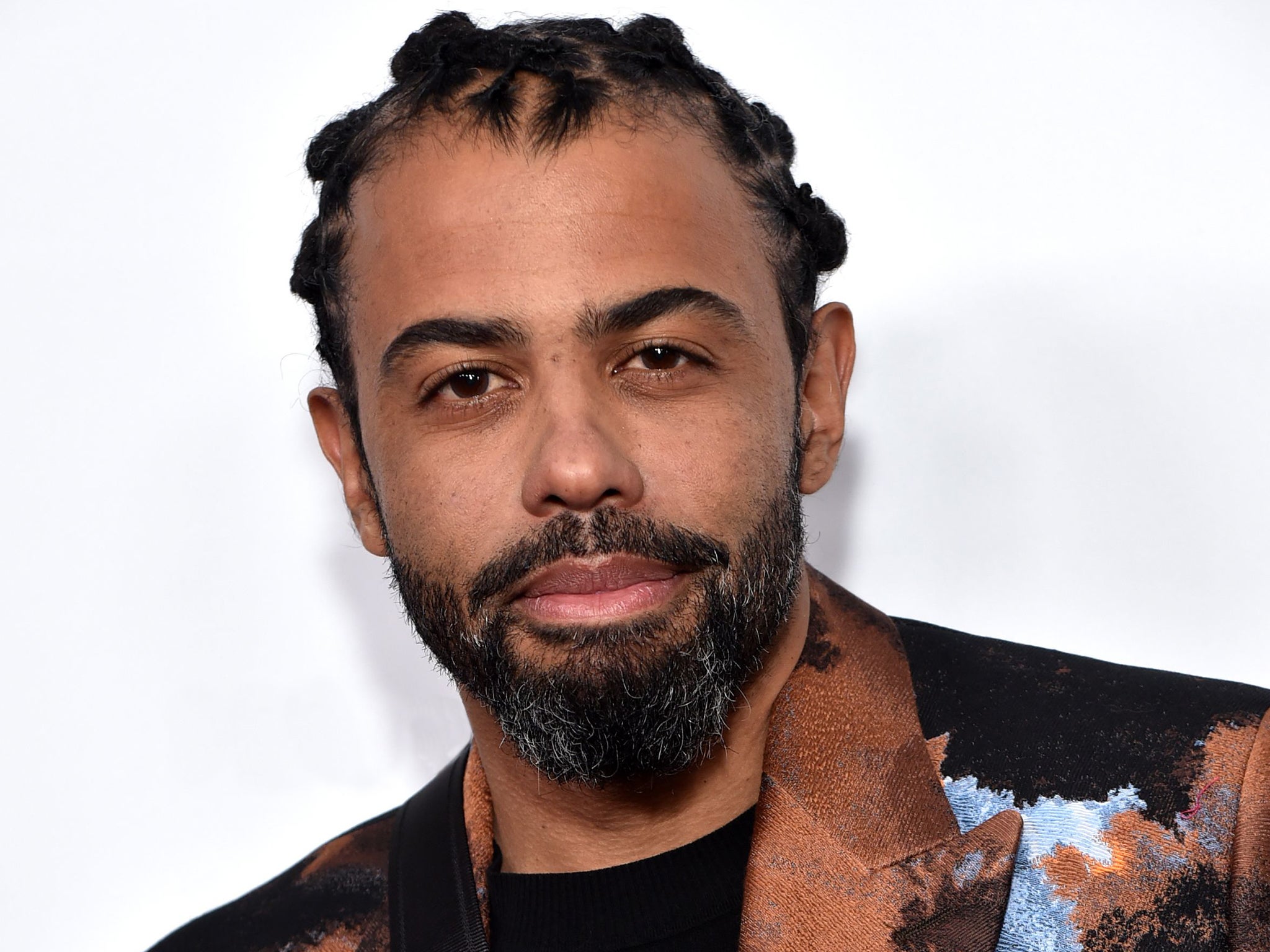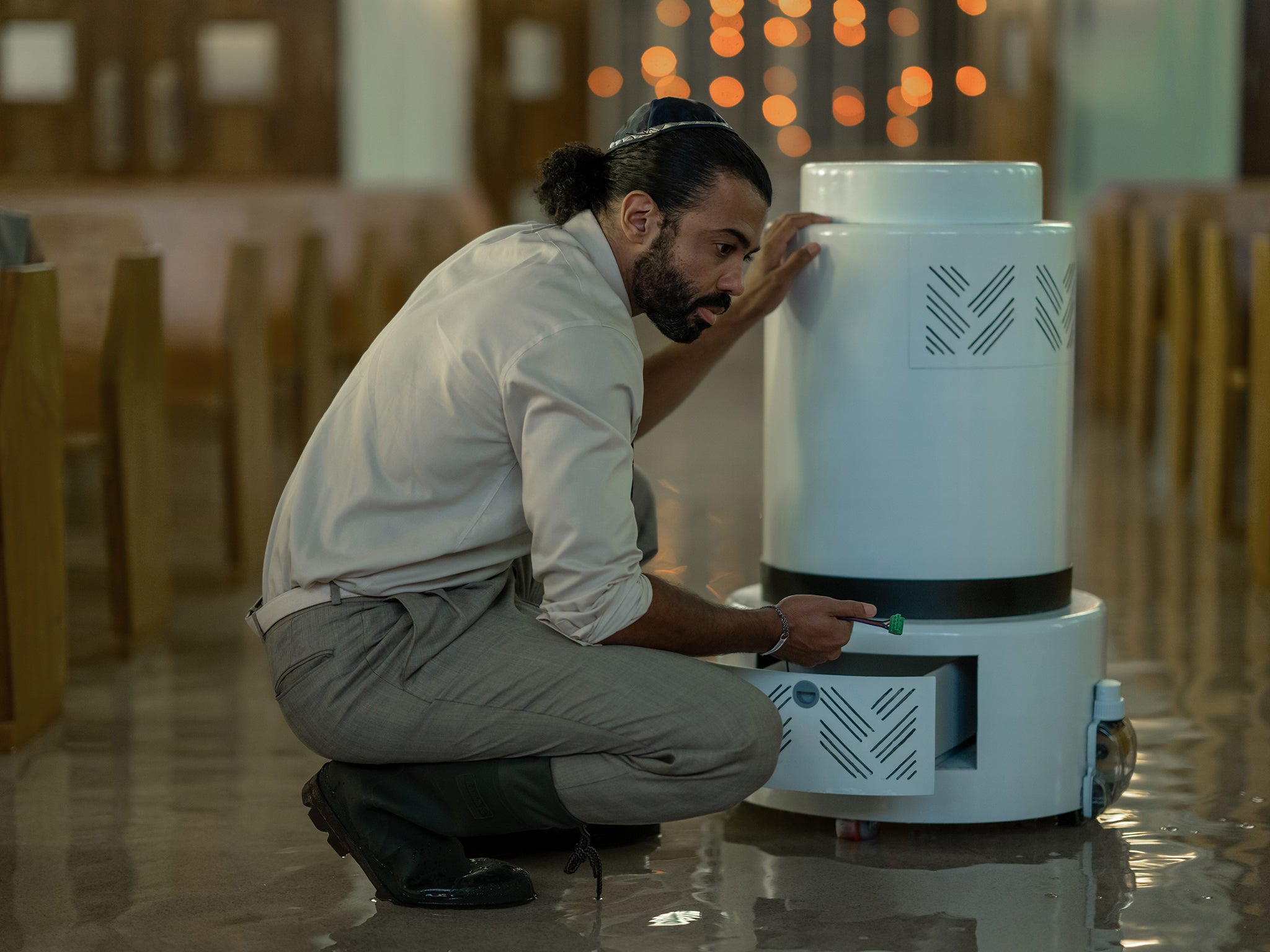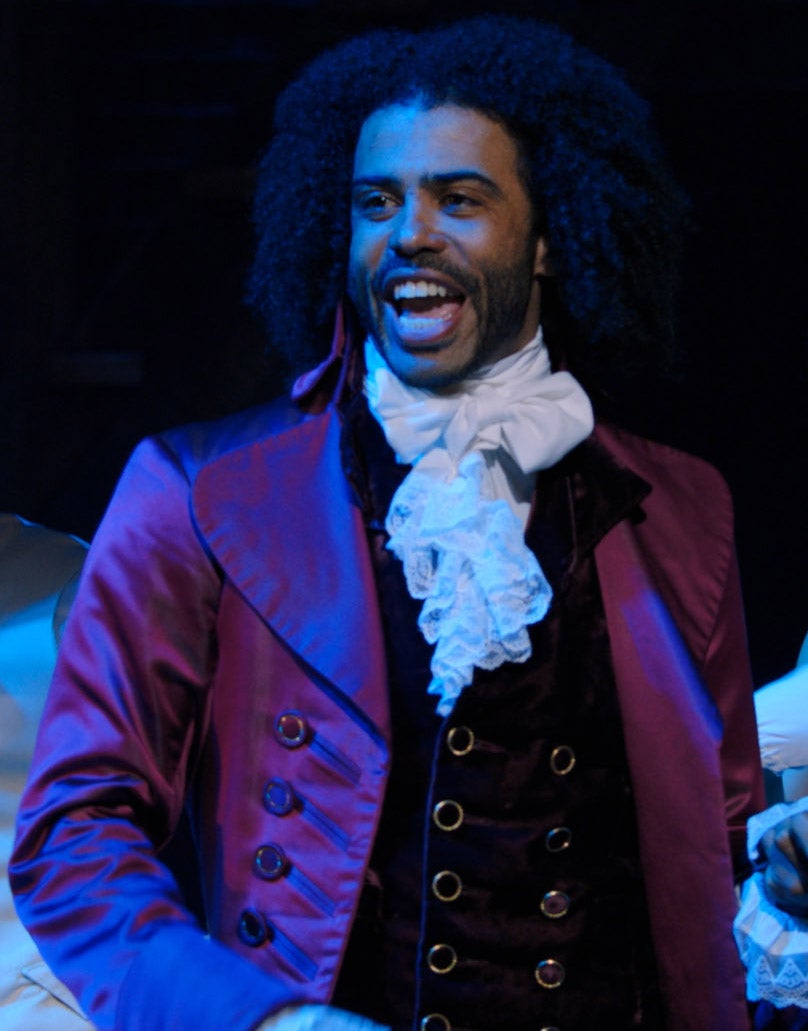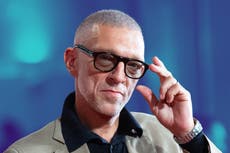‘We need to prioritise the climate’: Daveed Diggs on extinction, Judaism, and why he doesn’t like to reflect on Hamilton
The Tony Award-winning star of ‘Hamilton’ and the forthcoming live-action ‘Little Mermaid’ speaks to James Mottram about his provocative new Apple TV+ series ‘Extrapolations’

Daveed Diggs is done talking about Hamilton. The American actor, rapper, writer and musician won fame, a Grammy and a Tony award for his role in the global musical phenomenon. But that was seven years ago now, and he’s not looking back. “I don’t reflect on it,” he tells me. “I don’t really think about it very often, unless somebody else brings it up. But, like, I just saw my friends... I just went and saw Oak in a great new production of A Doll’s House.” Oak, of course, is Okieriete Onaodowan, who co-starred in the show. “I met some of my best friends there. And so it’s been great to have that community around us, and get to see all the things that they’re doing now.”
Even the musical’s diverse cast couldn’t entirely save it from controversy, given the slave-owning pasts of some of the historical figures it depicted. Meanwhile, Disney’s live-action remake of The Little Mermaid, in which Diggs plays Sebastian the crab, has attracted a different kind of backlash, after the studio decided to update the blue-eyed, red-haired cartoon Ariel with Black actor Halle Bailey. Never has there been more intense scrutiny of the entertainment world. Right now, though, Diggs has his thoughts set on something that could spell global catastrophe.
We’re in a London hotel room, and Diggs is wearing a chocolate-brown singlet, navy slacks and a gold pendant. It gives him the air of someone who’s just laid down a track in a recording studio. He exudes a laidback West Coast mien, at least until he starts speaking. As anyone who saw Hamilton knows, this man can speak – fast. At times, his rhymes saw him spit out six words a second.
Diggs also met his partner on the show. He lives in Los Angeles with former Hamilton co-star Emmy Raver-Lampman, but there’s something about California that is on his mind. For Diggs, the shift in climate there has become impossible to ignore. “The kinds of weather we’re experiencing now are different than any point in the rest of my life,” he says. “And you become aware that that means something.”
It’s relevant, because Diggs is starring in a drama about climate meltdown. His new Apple TV+ show is Extrapolations, an anthology series that also stars Meryl Streep, Sienna Miller and Tobey Maguire. The creator is Scott Z Burns, the writer-director who previously wrote Steven Soderbergh’s Contagion, the 2011 drama that charted the course of a devastating pandemic – and became a belated hit when Covid struck. Now he’s turned his attention to climate change, with each episode set in a different year. Episode one is in 2037, with the world see-sawing dangerously towards ecological crisis. For Diggs, it’s not his first time exploring the subject, after starring in post-apocalyptic TV show Snowpiercer.
The future of the world? “It’s the thing I think about,” he shrugs. “I think we’re at a pretty critical moment in terms of the discussion of where we go with the way we treat the planet. And so the future that’s presented [in Extrapolations] is one possible one. But [the] thing that I like very much about the show is that it starts us off essentially where we are now. And we start to see a few decisions that could have been made differently, that might have made big differences. We could start by prioritising the climate, and maybe that will help us have a different future. We don’t know what that is. I think there’s no way to predict how far gone we already are. But it doesn’t have to be like that.”
You end up having to make sacrifices
Diggs was born in 1982 in Oakland, California, and went to high school in Berkeley. “We’re a big recycling town,” he nods. Caring for the environment has been ingrained in him since childhood. “I’ve been pretty concerned about it,” he adds. “It’s hard to not be.”
He’s the first to admit that it’s all too easy to ignore one’s own actions. “I travel a whole lot. That’s something I don’t think about: the necessity of travel and what that does,” he admits. He’s not about to claim he had an awakening making Extrapolations, but he felt a change inside. “I think I became aware of how unconscious I am about a lot of things. And how difficult it is to change your behaviours.” He looks sheepish for a second. “I still flew on a plane here. But I was aware of what that meant. And that’s been the biggest difference for me... being a little bit more aware. Which helps me at times be like, ‘Oh, maybe I don’t actually have to do that right now.’”
The executive producer of Extrapolations, Michael Ellenberg, felt recruiting Diggs was essential. “Daveed’s intelligence, his warmth and complexity [means] that an audience almost immediately can engage and identify with him,” he says. Intriguingly, Diggs plays Marshall, a rabbi, who is dealing with his own familial issues as the world is fissuring. “He’s not ruminating on climate change very much,” says Diggs. “But it still is the world that everybody is living in. And that’s what I think was so powerful about these stories. It’s about it, without only being about it.”
Playing Marshall also felt deeply personal. “I am Jewish,” Diggs explains, “and I was raised as a more practising Jew than I am now. But still, [it was] this particular Berkeley brand of Judaism that’s pretty lax!” His Jewish side comes from his mother Barbara, a social worker; his father, Dountes, who worked as a bus driver, is African-American. When their son was born, they named him “Daveed”, the Hebrew way of pronouncing “David”.

Meeting rabbis for the show helped him reacquaint with his own Judaism. “It’s easy to imagine religion as something that is opposed to science, working in opposite directions than science. But that wasn’t true for any of the rabbis that I talked to, right? They were all hyper-concerned with climate change. Pandemic times, too. They were [involved in] vaccine campaigns, and reading all of the Covid science, and figuring out how to keep their communities together based on science. That was just really interesting, to reconnect with religion in a different way than I did when I was young. But the same religion that I claim I practice, because occasionally I light a candle!”
After high school, Diggs gained a place at Brown University, studying theatre – although he was also a star athlete. At the 110-metre hurdles, he broke Brown’s record of 14.21 seconds. Yet sports always came second to his love for the arts. A passionate spoken-word poet, he started performing on the underground hip-hop circuit both in and around university. Money was never a priority. “You end up having to make sacrifices,” he remembers. “Where you live might not be where you wanted to live.” After graduating, he worked as a substitute teacher, a job that by chance led him to meet creator extraordinaire Lin-Manuel Miranda. A fellow teacher, who was part of Miranda’s improv hip-hop group Freestyle Love Supreme, introduced them.
Diggs was present at the very early readings of Hamilton, Miranda’s hip-hop musical about America’s fight to establish its independence. He’d go on to originate the roles of the French-born American revolutionary officer the Marquis de Lafayette, and founding father Thomas Jefferson, in the 2015 production at New York’s Public Theater. When the show moved to Broadway, he went, too, watching with disbelief as it became the hottest ticket in town. Famously, the Obamas attended twice, although, as Diggs once said, “the most starstruck” he’d been was meeting childhood hero and rap icon MC Hammer.

Perhaps this reluctance to look backwards – aside from the desire to keep pushing his career forward – was simply the fear of being defined by one thing. Fame felt troubling for someone who had been on the margins for years. “It all seems fleeting,” he mused in a 2016 New York Times interview, shortly after he stepped away from the show. “It feels that the reason people want me is not built on anything.” When another journalist asked where he kept his Tony, he demurred: “I don’t know... it’s wherever the shot glasses are! When we run out of shot glasses, somebody uses the Tony.”
Unquestionably, Diggs has made the right moves since Hamilton. He became a staple presence in American TV, taking on a diverse array of shows. He brought his rapping skills to Baz Luhrmann’s 1970s-Bronx-set show The Get Down, and a fiery passion to abolitionist Frederick Douglass in miniseries The Good Lord Bird. He became a screenwriter, too. He and long-time friend/collaborator Rafael Casal spent a decade developing the 2018 movie Blindspotting, in which Diggs played a felon on probation – a role that gained him a nomination for Best Male Lead at the Independent Spirit Awards. He spent lockdown adapting it for TV.
In tandem to this, he’s still releasing music with Clipping, the experimental hip-hop group he formed with old friends William Hutson and Jonathan Snipes. From a Black Lives Matter protest anthem to a Hanukkah rap about puppies, his musical output is as diverse and eclectic as you’d hope. These days, though, you’re more likely to hear him voicing a Hollywood animation. He was the barbershop patron Paul in Pixar’s Soul (as well as a cultural consultant behind the scenes). He’ll next be heard in The Little Mermaid.
The project reunites him with Miranda, who co-wrote the songs, but he was more concerned with representation. As he told The Hollywood Reporter, “I was never gunning to be in these Disney remakes and, if I’m being honest, Sebastian comes with a lot of responsibility. For a lot of folks my age who are from the Caribbean, Sebastian was the first time they’d really seen themselves in American film, and I’m not Caribbean.” He’s bracing himself for the reaction; whatever will be will be. Relaxed, positive, open... “I’m pretty hopeful,” he smiles. “Yeah, generally.”
‘Extrapolations’ is on Apple TV+ from 17 March
Join our commenting forum
Join thought-provoking conversations, follow other Independent readers and see their replies
Comments


Bookmark popover
Removed from bookmarks